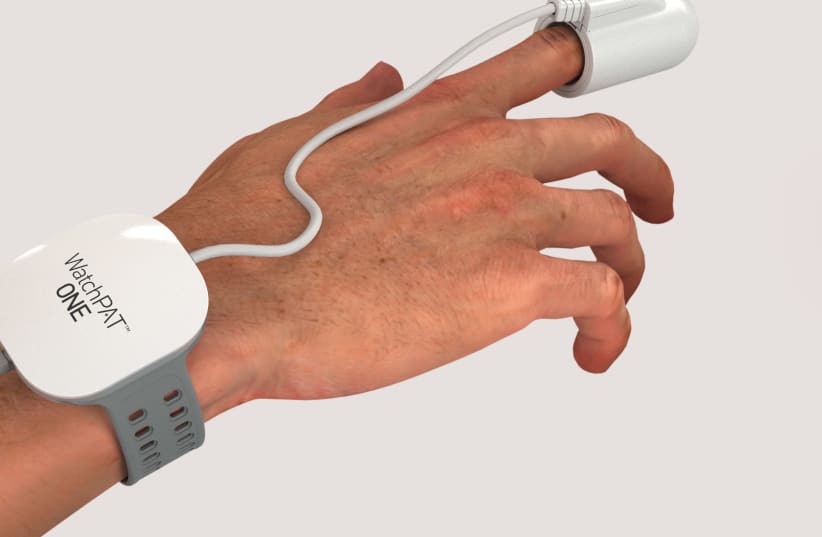Far more than just a noisy nocturnal nuisance, frequent and loud snoring can often be a symptom of obstructive sleep apnea, the collapse of muscles and soft tissues in the throat during sleep.
Exceeding previous estimates, more than one-third of adults in North and South America – roughly 170 million people – are now predicted to suffer from sleep apnea, according to a study published earlier this month by San Diego-based ResMed.
While sleep specialists have traditionally taken responsibility for diagnosing obstructive sleep apnea, either by conducting a nocturnal polysomnography test at a sleep clinic or a home sleep test, recent research has increasingly highlighted a complex relationship between sleep apnea and significantly increased risk of cardiovascular disease.
Accordingly, Israeli medical device developer Itamar medical has sought to integrate sleep apnea management into the cardiac patient care pathway by enabling diagnosis at the cardiology clinic.
The Caesaria-based company – listed on both the Tel Aviv Stock Exchange and Nasdaq – is behind WatchPAT, an FDA-approved portable diagnostic device that uses finger-based physiology to diagnose obstructive sleep apnea in the comfort of the patient’s own home.
“As far as Itamar Medical is concerned, treating cardiovascular patients without considering the status of sleep apnea is malpractice,” Itamar Medical president and CEO Gilad Glick told The Jerusalem Post.
According to Glick, there are two parallel worlds of treatment for sleep apnea, with speedy patient care lying primarily in the cardiology clinics rather than the sleep laboratories.
“One world of treatment is the slow motion route of sleep apnea patients, with months-long waiting lists and just 5,000 doctors in the US,” he said. “Then you have the world of cardiovascular patients, with a sense of urgency, 35,000 doctors and big money, procedures and technology. The two worlds don’t work together, so we strategically decided to take our solution and put it in the hands of cardiologists five years ago.”
By reducing wait times and significantly reducing overall cost by taking responsibility for diagnosis out of the sleep clinic, Itamar Medical hopes to simplify patient access to sleep apnea care and support the severely under-diagnosed pool of cardiac patients suffering from the co-morbidity of sleep apnea.
“The fact that the sleep world resisted the change didn’t stop us from going to cardiologists and telling them about the unmet need for diagnosis,” said Glick. “After first-line diagnosis is made, the sleep doctors always come on board to interpret the study, in some cases conduct deeper diagnosis and, most importantly, treat the diagnosed patients.”
Taking diagnosis from the sleep clinic to the patient’s home also makes it far less costly, Glick said, with reimbursement for in-lab diagnosis in the United States costing up to $2,000, compared with roughly $200 for home testing.
Once diagnosed, patients are often encouraged to lose weight, and many are prescribed unpleasant Continuous Positive Airway Pressure (CPAP) therapy.
Emerging therapies include mandibular mouth guard devices, and even more promising, mild electrical neurostimulation of the hypoglossal nerve, named as the second top medical innovation of 2018 by the Cleveland Clinic.
